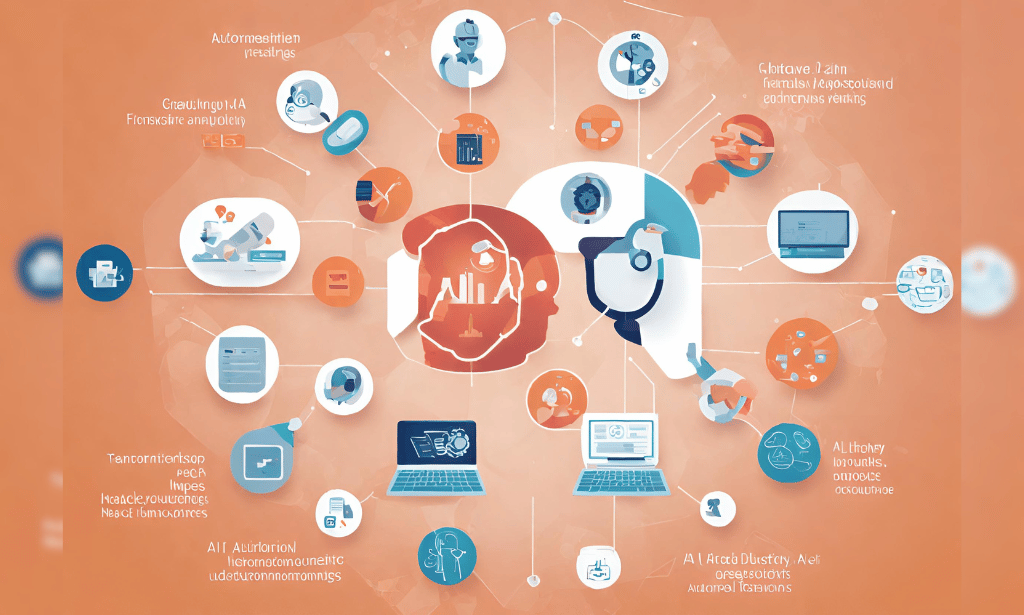Exploring Artificial Intelligence: A Comprehensive Guide
Dive into the fascinating world of Artificial Intelligence (AI) with this comprehensive guide. From its historical origins to modern-day applications and future trends, this article covers everything you need to know about AI, including fundamental concepts, ethical considerations, and real-world examples.

Introduction to Artificial Intelligence
Artificial Intelligence (AI) is a fascinating and rapidly evolving field that aims to create intelligent machines capable of performing tasks that typically require human intelligence. From self-driving cars to virtual assistants, AI has penetrated various aspects of our lives, revolutionizing how we live, work, and interact with technology.
Historical Background
Origins of AI
The roots of AI can be traced back to the mid-20th century when scientists and researchers began exploring the concept of creating machines that could mimic human intelligence. The term "artificial intelligence" was coined in 1956 during the Dartmouth Conference, marking the birth of this interdisciplinary field.
Evolution of AI over the Years
Over the decades, AI has experienced significant advancements, driven by breakthroughs in computer science, mathematics, and cognitive psychology. From early symbolic AI systems to modern-day neural networks, the evolution of AI has been characterized by leaps in technology and innovative approaches to problem-solving.
Fundamental Concepts of AI
Machine Learning
Machine learning is a subset of AI that focuses on developing algorithms capable of learning from data and making predictions or decisions without explicit programming. It enables computers to recognize patterns, analyze large datasets, and improve performance over time through experience.
Deep Learning
Deep learning is a branch of machine learning inspired by the structure and function of the human brain. It utilizes artificial neural networks with multiple layers (hence the term "deep") to extract features from data and achieve higher levels of abstraction, leading to breakthroughs in image recognition, natural language processing, and speech recognition.
Neural Networks
Neural networks are computational models composed of interconnected nodes (neurons) that work collaboratively to process and analyze information. They are capable of learning complex patterns and relationships in data, making them powerful tools for tasks such as image classification, language translation, and predictive analytics.
Applications of AI
AI has a wide range of applications across various industries, revolutionizing traditional processes and driving innovation.
Healthcare
In healthcare, AI is being used to diagnose diseases, personalize treatment plans, and improve patient outcomes. From medical imaging analysis to drug discovery, AI-powered solutions are transforming the way healthcare professionals deliver care.
Finance
In the finance industry, AI algorithms are utilized for fraud detection, algorithmic trading, risk management, and customer service. By analyzing vast amounts of financial data in real-time, AI systems can identify patterns and anomalies, enabling organizations to make informed decisions and mitigate risks.
Transportation
AI is reshaping the transportation sector with advancements in autonomous vehicles, traffic management systems, and predictive maintenance. Self-driving cars equipped with AI technology have the potential to enhance road safety, reduce traffic congestion, and optimize transportation logistics.
Marketing
In marketing, AI-driven analytics tools are empowering businesses to gain deeper insights into consumer behavior, personalize marketing campaigns, and optimize advertising strategies. By analyzing customer data and predicting trends, AI helps companies target the right audience with the right message at the right time.
Ethical Considerations in AI
While AI offers tremendous potential for innovation and progress, it also raises important ethical considerations that must be addressed.
Bias in AI Algorithms
One of the key challenges in AI is the presence of bias in algorithms, which can result in discriminatory outcomes and perpetuate social inequalities. It is essential to ensure that AI systems are trained on diverse and representative datasets to mitigate bias and promote fairness.
Privacy Concerns
AI applications often involve the collection and analysis of vast amounts of personal data, raising concerns about privacy and data protection. It is crucial for organizations to implement robust security measures and transparent data policies to safeguard individuals' privacy rights.
Future Trends in AI
The future of AI holds exciting possibilities, with ongoing research and development paving the way for new breakthroughs and innovations.
Advancements in Natural Language Processing
Natural language processing (NLP) is an area of AI that focuses on enabling computers to understand, interpret, and generate human language. With advancements in NLP, we can expect to see more sophisticated chatbots, virtual assistants, and language translation tools that facilitate seamless communication between humans and machines.
Integration of AI with Internet of Things (IoT)
The integration of AI with the Internet of Things (IoT) is poised to transform various industries, from smart homes and healthcare to agriculture and manufacturing. By combining AI-powered analytics with sensor data from connected devices, organizations can unlock new insights, automate processes, and optimize resource utilization.
Conclusion
Artificial Intelligence is a dynamic and rapidly evolving field that holds immense potential to drive innovation, improve efficiency, and enhance our quality of life. As AI continues to advance, it is crucial to address ethical considerations, promote transparency, and ensure that the benefits of AI are accessible to all.
FAQs
- What is Artificial Intelligence?
Artificial Intelligence (AI) is a branch of computer science that focuses on creating intelligent machines capable of performing tasks that typically require human intelligence. - What are the main applications of AI?
AI has applications in various industries, including healthcare, finance, transportation, and marketing, where it is used for tasks such as diagnosis, fraud detection, autonomous driving, and personalized marketing. - What are some ethical concerns associated with AI?
Ethical concerns in AI include bias in algorithms, privacy issues, and the potential impact on employment and social inequality. - How is AI expected to evolve in the future?
Future trends in AI include advancements in natural language processing, integration with the Internet of Things (IoT), and the development of more autonomous and adaptive systems. - How can organizations ensure responsible AI development and deployment?
Organizations can promote responsible AI development by prioritizing transparency, accountability, and fairness, and by actively engaging with stakeholders to address ethical concerns and mitigate risks.

You must be logged in to post a comment.